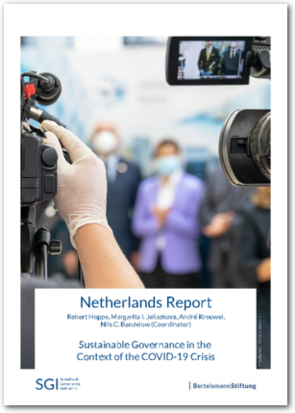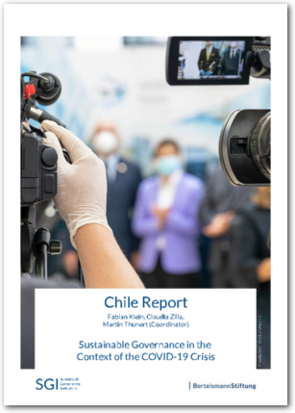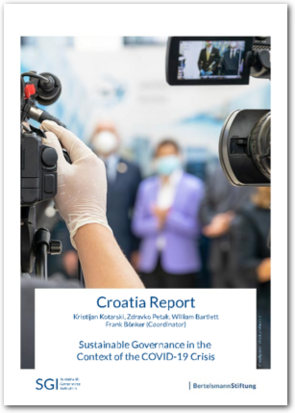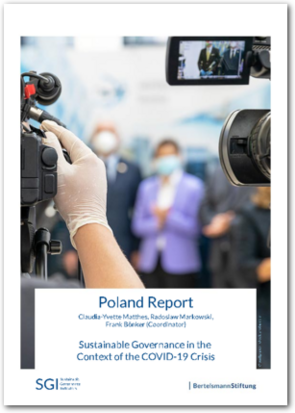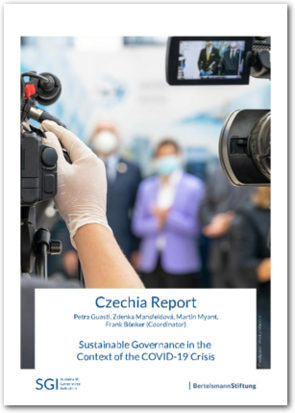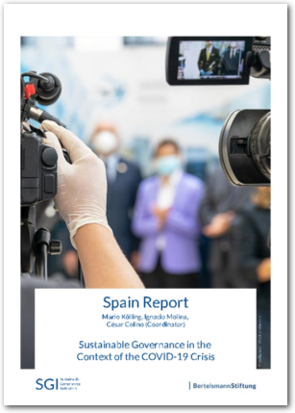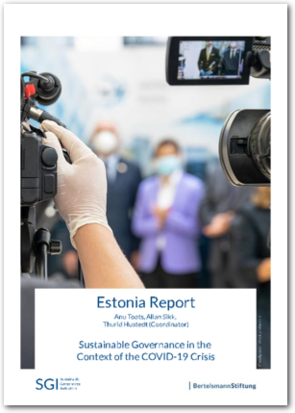Bertelsmann Stiftung (Hrsg.) (PDF)2021
In spite of all the national, regional and local crisis management efforts, never since World War Two have so many Dutch citizens died in one year: 967 persons per 100,000 inhabitants. In 1993, a year with a vehement influenza-epidemic, 901 per 100,000 inhabitants died.
weiterlesen
Bertelsmann Stiftung (Hrsg.) (PDF)2021
Chile was going through a political and social crisis when the coronavirus pandemic hit the country. Since October 2019, massive peaceful demonstrations as well as acts of destruction targeting infrastructure had dominated the public space. In January 2020, the government...
weiterlesen
Bertelsmann Stiftung (Hrsg.) (PDF)2021
From a public health perspective, New Zealand is a COVID-19 success story. As of January 2021, New Zealand recorded only around 2,200 cases of and 25 deaths caused by COVID-19, which translates to a mortality rate of 0.51 deaths per 100,000 population – the lowest death rate...
weiterlesen
Bertelsmann Stiftung (Hrsg.) (PDF)2021
In Croatia, the COVID-19 pandemic ended a period of robust economic growth and declining macroeconomic imbalances. The twin deficits in the fiscal balance and the current account had become surpluses after 2015, and by the beginning of 2020, the seasonally adjusted...
weiterlesen
Bertelsmann Stiftung (Hrsg.) (PDF)2021
When COVID-19 infections began spreading first in China and then in Italy, the PiS government downplayed the threat of a pandemic. Once the pandemic hit Poland, however, the government responded very quickly. Already two days before the first confirmed case of a COVID-19...
weiterlesen
Bertelsmann Stiftung (Hrsg.) (PDF)2021
Faced with the first recorded case of COVID-19 on 1 March 2020, the Czech government implemented a state of emergency with quite stringent lockdown measures almost immediately and quite effectively. Fear was inspired by news reports of the pandemic in Italy. As of mid-April,...
weiterlesen
Bertelsmann Stiftung (Hrsg.) (PDF)2021
South Korea was comparably successful both in limiting the spread of the coronavirus pandemic and in limiting its social and economic consequences. As of 15 January 2021, the country had registered 71,820 confirmed Corona cases and 1,217 deaths, and the economy was expected...
weiterlesen
Bertelsmann Stiftung (Hrsg.) (PDF)2021
The coronavirus crisis has been an unusual event, with no obvious blueprint for action in terms of health or economic policies. Information and knowledge regarding how the pandemic would unfold was and remains incomplete; moreover, lockdown-style restrictions are well...
weiterlesen
Bertelsmann Stiftung (Hrsg.) (PDF)2021
Spain was one of the countries hardest hit by COVID-19 worldwide, both in terms of infections and deaths. The number of coronavirus cases recorded in Spain since the beginning of the pandemic officially exceeded two million at the beginning of January 2021 and the pandemic...
weiterlesen
Bertelsmann Stiftung (Hrsg.) (PDF)2021
A key feature of Estonia’s performance during the COVID-19 crisis has been sectoral unevenness. This has mainly been caused by two factors: the varying maturity of institutional structures and paradigmatic policy change.
weiterlesen
